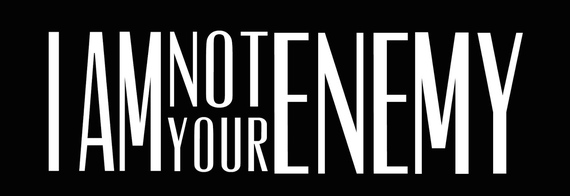by Ralph Benko
It is heartening that prominent civic leaders recently have tackled what we at LivingRoomConversations.org (and others) have called the defining problem of the politics of our era: negative partisanship. Now, from the center left, come FLOTUS Michelle Obama, former president Bill Clinton, and, from the center right, American Enterprise Institute, Arthur Brooks to inspire us with calls to action!
Last year, President Clinton gave a speech, reported in The New York Review of Books by Michael Tomasky:
I did find one paid speech by Bill Clinton, to something called the SharePoint Conference, held by Microsoft in March 2014. ... The overriding theme of the talk was how we choose to define ourselves as a species, as identity-based competitors or common-good-pursuing cooperators.
He must have said some version of "what we have in common is more important than our interesting differences" fifteen times. He concluded by quoting E.O. Wilson to the effect that "the conquest of Earth has come only to the cooperators.
Recently the IJReview reported on First Lady Michelle Obama's speech to the graduates at Oberlin College.
Today, I want to urge you to actively seek out the most contentious, polarized, gridlocked places you can find. Because so often, throughout our history, those have been the places where progress really happens -- the places where minds are changed, lives transformed, where our great American story unfolds.
On June 8th, in his New York Times column AEI president Arthur Brooks took the discourse up another notch in a column entitled The thrill of political hating:
The 2016 presidential race is already upon us. Do you find that prospect exciting or exhausting? If you chose the latter, I'm willing to wager it's in part because of the destructive rhetoric that threatens to accompany the election. At least half of American adults felt that the last presidential campaign was too negative.
The conventional approach is to blame the politicians and tacticians for this dreaded odium politicum. But we citizens need to look inward a little. Whether or not we want to admit it, political hate is a demand-driven phenomenon. We are the ones creating a big market for it.
...
Millions of Americans dislike it, but should we care about its effects? Some dismiss it as simply inevitable. Others -- myself included -- see it as both damaging and regrettable, joining the Dalai Lama in the belief that all hate "is our true enemy," with "no other function than simply destroying us, both in the immediate term and in the long term."
In his first Inaugural Address, on March 4, 1801, Thomas Jefferson felt it necessary to warn the young nation that "having banished from our land that religious intolerance under which mankind so long bled and suffered, we have yet gained little if we countenance a political intolerance as despotic, as wicked, and capable of as bitter and bloody persecutions."
As Pogo famously said, "we have met the enemy and he is us." It does not have to be this way. Our adversary need not be our enemy. We can learn from those with whom we disagree, even disagree passionately. All of us are smarter than any of us.
A living room conversation may seem like a small thing. Still, consider what Jesus said about small things: "The kingdom of heaven is like a mustard seed, which a man took and planted in his field. Though it is the smallest of all seeds, yet when it grows, it is the largest of garden plants and becomes a tree, so that the birds come and perch in its branches."
If you are of a more scientific bent, consider, E = mc2: "the universal proportionality factor between equivalent amounts of energy and mass is equal to the speed of light squared." The energy held inside an atom is enormously powerful.
Why not both spiritual and scientific? Consider this conversation between spiritual philosopher Krishnamurti and quantum physicist David Bohm:
DB: If it can reach those who are able to listen...
K: Which means that to find the ground the first thing is to listen.
Little things matter a lot. Our private informal actions, such as respectfully listening to someone with whom we disagree, have real power. That's what we are learning from our own living room conversations. That is something you may learn from yours.
Ralph Benko serves as senior advisor, economics, for American Principles in Action, is an internationally syndicated political columnist, and member of the Conservative Action Project. Ralph is editor-in-chief of thesupplyside.blogspot.com, and, with Charles Kadlec, the author of The 21st Century Gold Standard: For Prosperity, Security, and Liberty, available for free download in eBook. Ralph and Charles Kadlec are co-editors of the Laissez Faire Books edition of Copernicus's Essay on Money. Ralph was a deputy general counsel in the Reagan White House and is also the proprietor of http://auntiesamwantsyou.com. Follow him on Twitter @TheWebster.
Graphic credit: Zakwriter
